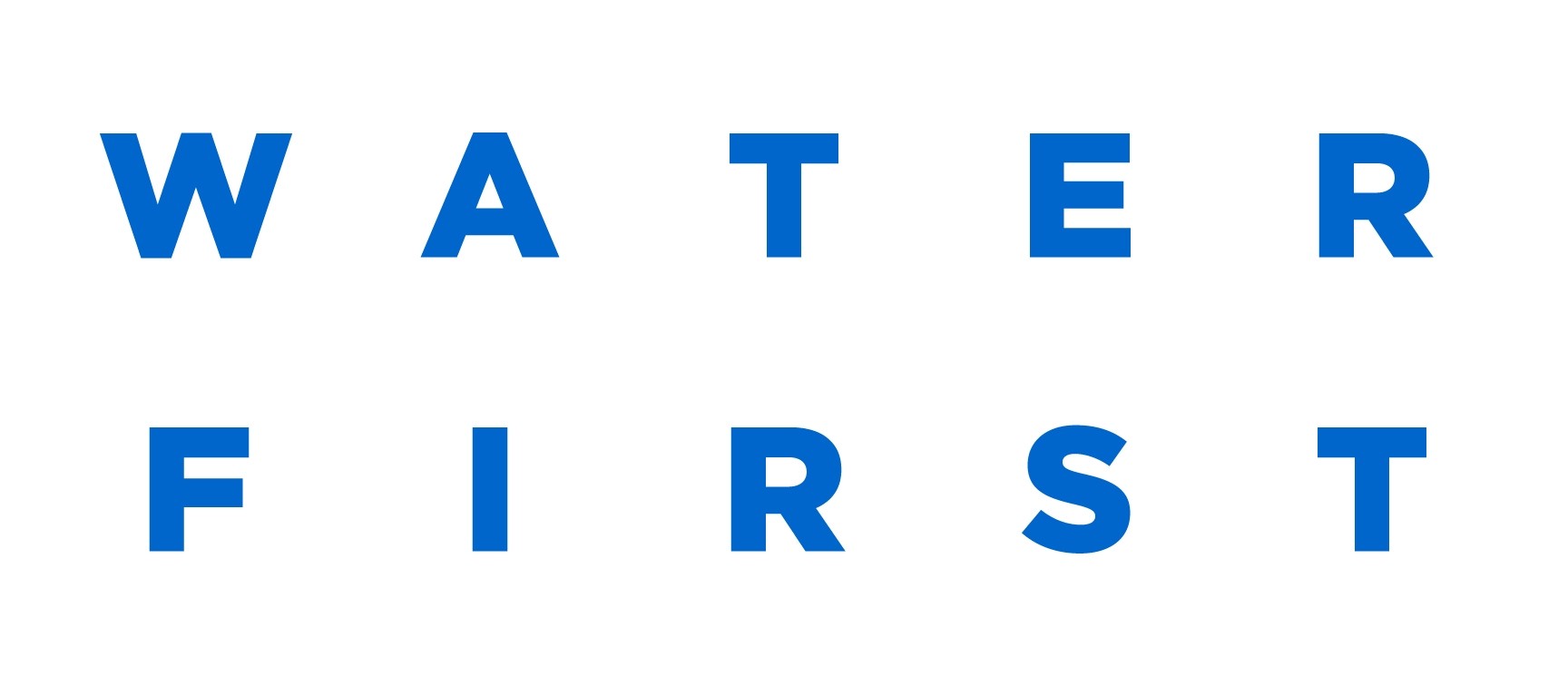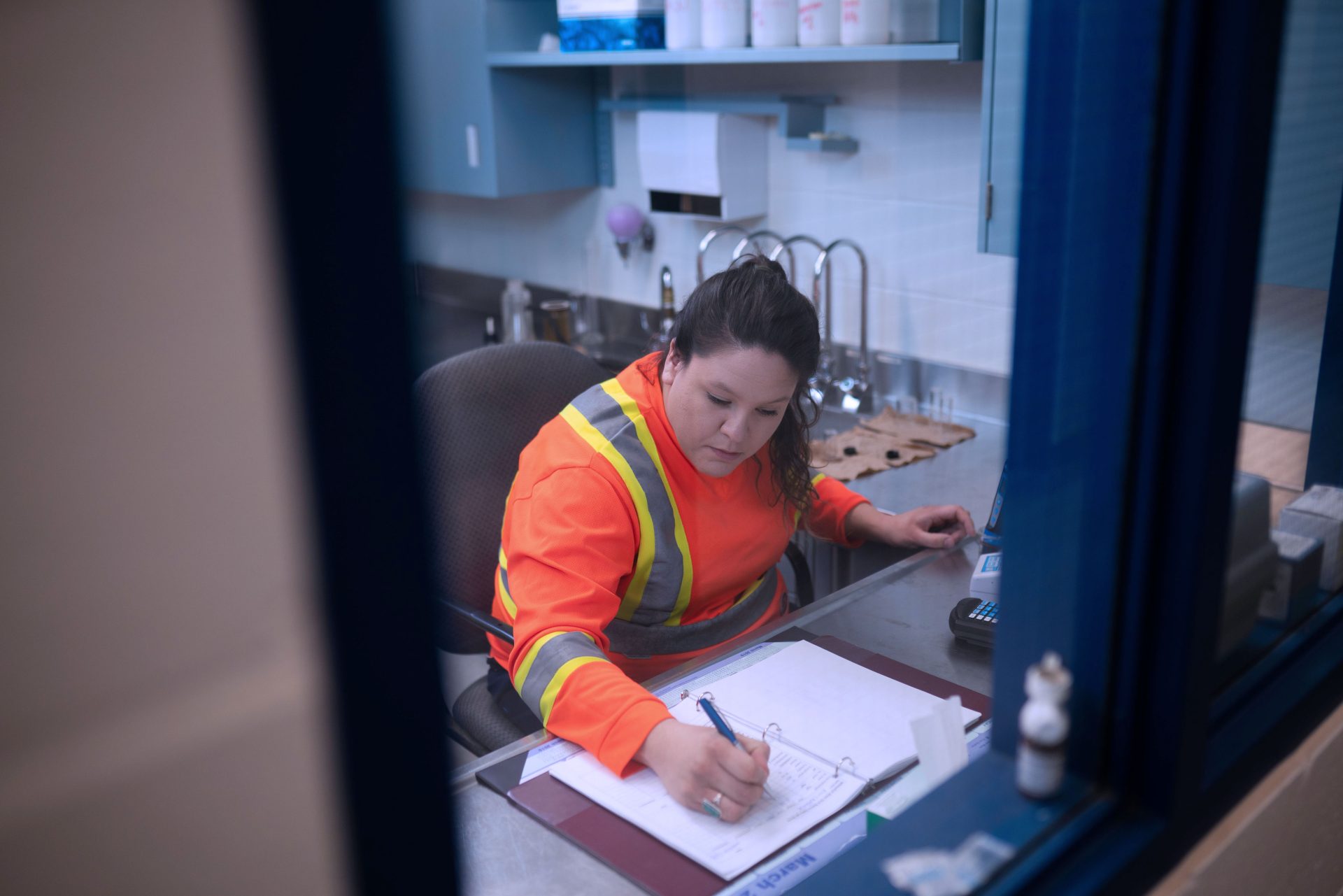The latest news and updates on our programs.
Contents:
- Water First Ambassador: Nadia George
- The Georgian Bay Internship is Underway
- Bimose Interns Sit For WQA Exam
- "The water needs our help"
- What's in Your Water on Manitoulin Island
- Long Term Monitoring Program in Sheshatshiu Innu First Nation
- New Article in Water Canada
- Restoration sites selected in Long Point First Nation
- Staff Profile: Kristen Engel
- Your Questions Answered
Water First Ambassador: Nadia George
Passion and enthusiasm emanate from Nadia George like water flows. Genuinely, effortlessly and with relish.
Based in Toronto, Nadia is an award-winning Indigenous-Canadian actor, media personality, public speaker, and now officially a Water First Ambassador.
Her work focuses on uplifting young Indigenous voices by giving space for them to be seen and heard.
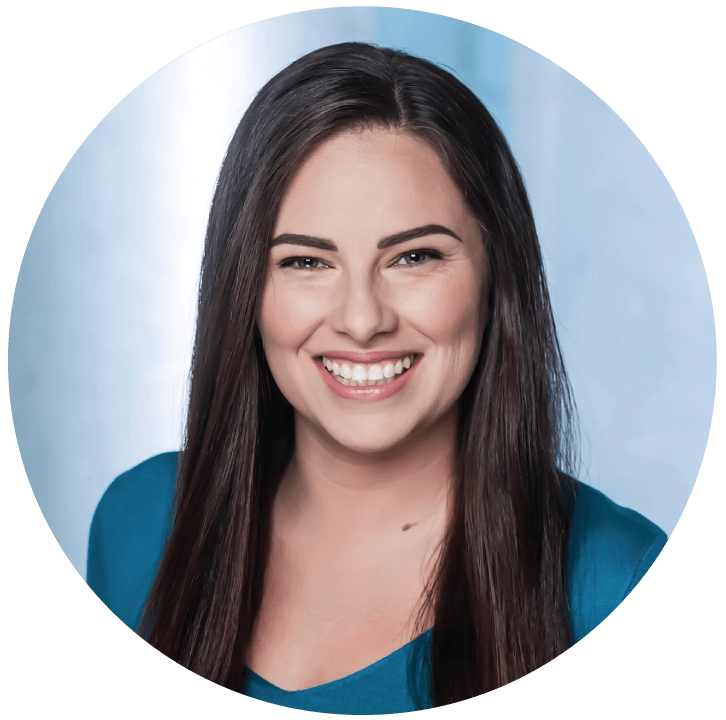
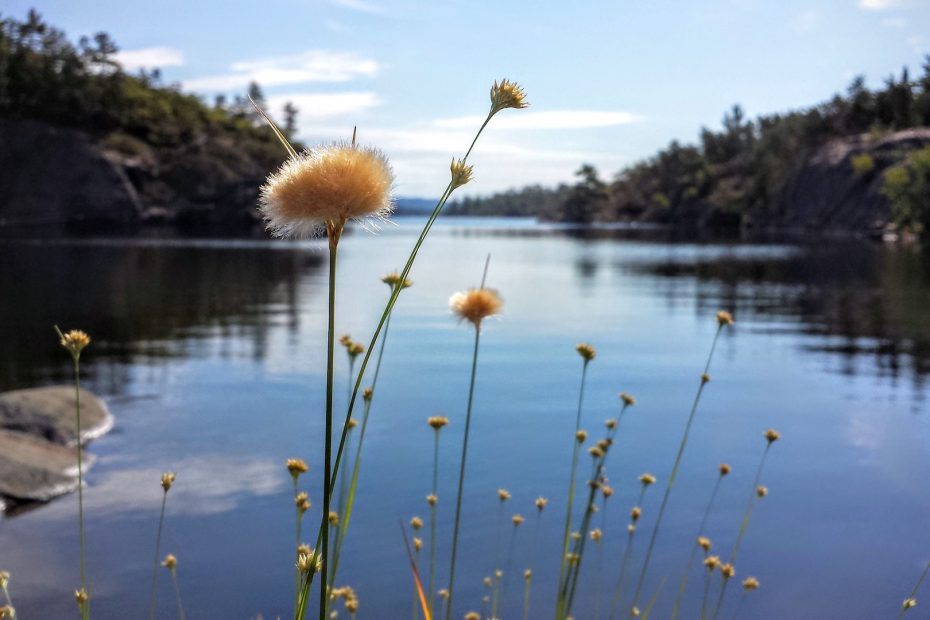
The Georgian Bay Internship is Underway
This past month, Water First launched the next Water First Internship Program in the Georgian Bay area in partnership with Waabnoong Bemjiwang Association of First Nations (WBAFN), Gezhtoojig Employment & Training, Anishinabek Nation, and all the participating communities. This program will train 16 young Indigenous adults to become certified water treatment plant operators. All partners are committed to addressing the local need for more young and qualified personnel in the water management field to help ensure safe drinking water in communities.
Below is a personal reflection from Justin McGregor, Water First Internship Coordinator & Trainer:
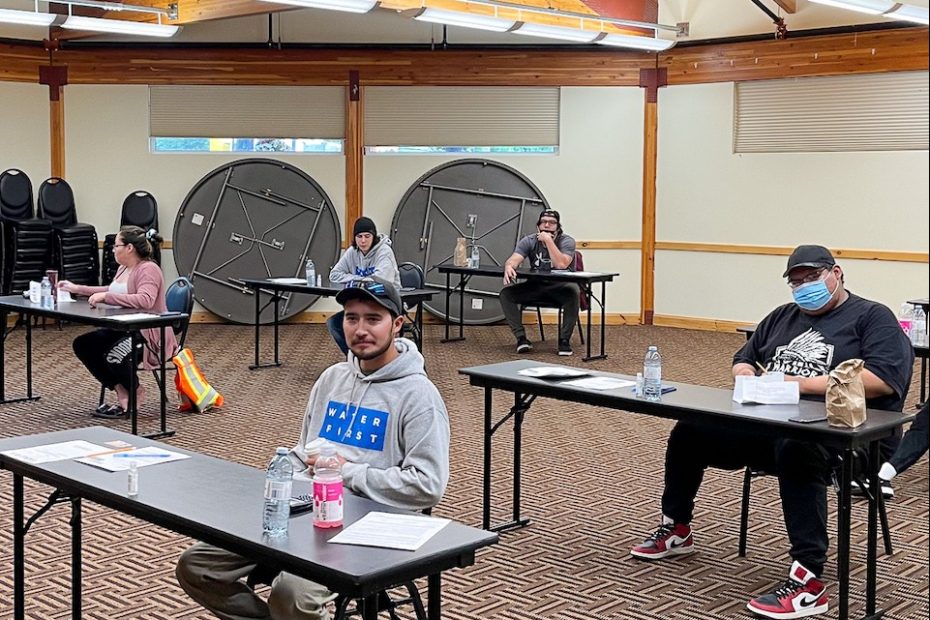
Bimose Interns Sit For WQA Exam
Interns in the Drinking Water Program with Bimose Tribal Council recently wrote their Water Quality Analyst (WQA) exam. The exam was originally scheduled for February of this year but had to be postponed several times due to COVID-19 pandemic restrictions. The WQA exams, which demonstrate a certified level of professional expertise and a dedication to high professional standards, are viewed as the most challenging of exams that interns must take as part of the program. Though not required to work as an operator in training like the Operator in Training and Entry Level Course certifications, the WQA certification can be useful in advancing their careers, for example, if they want to work in environmental water or at a water testing lab.
Aanii,
We kicked off a new Internship Program with eight participating communities at the end of June. I have to say that so far the engagement and participation has been amazing. We have a strong group of interns who are eager to learn new skills with regards to Water Treatment, as well as Environmental Monitoring.
Due to COVID restrictions, we started the program with 3 weeks of online introductory workshop sessions that included online learning and hands-on activities they could do at home or that took them outside.
After that, they started a Small Drinking Water Systems online certification course. This course is the perfect start for our interns to get introduced to their roles as future water operators and water quality analysts. It is geared to be a stepping point to learn best practices and theory on what it is like day-to-day in a typical water treatment plant and what to expect for future certification exams.
Working with the interns using online delivery has its limitations, but we were able to help them navigate the course through a week-long session where we discussed, summarized and reviewed topics that we found interesting and challenging. I feel confident that it really helped ensure that the interns retained the main topics of each section.
Upon successfully passing the exam, the interns will be considered a ‘trained person’ which means they will be able to assist in the daily routines at their local water treatment plants to ensure clean drinking water is being distributed to the community. These are exciting times for these interns. Stay tuned for more updates.
Miigwetch,
Justin
"The water needs our help."
Tasha Beeds, a Plains Cree Mide-Kwe and Water Walker, has walked nearly 7,000 km to raise awareness about the current state of water systems in Canada and the United States. She is currently a Ph.D. Candidate in Indigenous Studies at Trent University with a research focus on violence, Indigenous women, and Cree consciousness.
Tasha shared her knowledge and experiences with Nibi (water) to the Indigenous youth interested in applying for the Georgian Bay Water First Internship. She inspired us all with stories of her journeys across her ancestral lands, and shared the ways in which we can engage with and help the water.
What's in Your Water on Manitoulin Island
On a rainy week in May, students from the Zhiibaahaasing and Sheshegwaning First Nations saw their water in a new light.
We delivered our hands-on What’s in Your Water program to the students of St. Joseph’s Anishinabek School on Manitoulin Island.
Over four days, students of all ages took part in STEM-based water science workshops designed to familiarize them with hydrology and watershed ecology, while further developing their relationship with water and their land.
“We did eight workshops, including an introduction to water filtration processes and a water treatment plant tour for the Grades 6-8 students,” said Adrianna Bilinski, Water First Indigenous School Engagement Coordinator.
Water First spent a week with students from Zhiibaahaasing and Sheshegwaning First Nation and they shared what they learned!
This is one of the many ways the Water First interns will be learning to use non-Indigenous tools alongside Traditional Knowledge and methods to help the water and people in their communities. We value this immensely.
A big thank you to Tasha Beeds for the opportunity to hear her speak and for her permission to share this video.
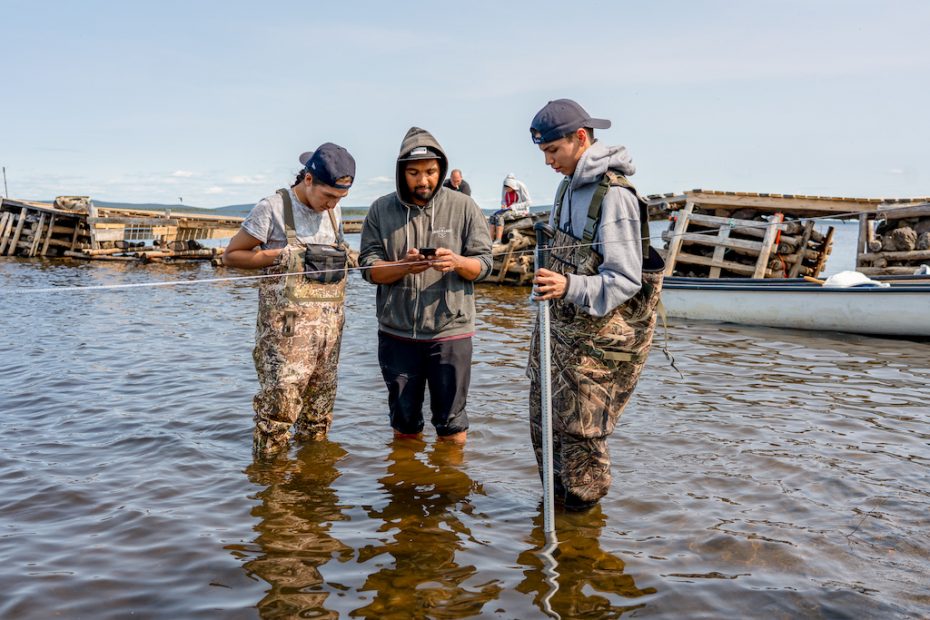
Long Term Monitoring Program in Sheshatshiu
After acquiring an old fishing lodge on Park Lake, Sheshatshiu Innu First Nation (SIFN) in central Labrador are beginning a 10-year process to clean up and improve the lodge site to run a 100% Innu owned and operated tourism lodge, just south of Akami-Uapishkᵁ-KakKasuak-Mealy Mountains National Park Reserve.
Water First is working with SIFN to develop a long-term fish habitat monitoring program for Park Lake, as well as fish habitat restoration to improve areas where garbage was left from the old lodge.
Our first visit to the community involved an opportunity to meet the managers of the lodge, the guides who operate it, and the youth apprentices being trained. Together, the group explored water quality and climate change monitoring, along with opportunities for knowledge exchange.
During this visit, the group also collected water and sediment samples to send for lab analysis to see the extent of the contamination that may have occurred from the old lodge waste. This monitoring will continue for 3 years.
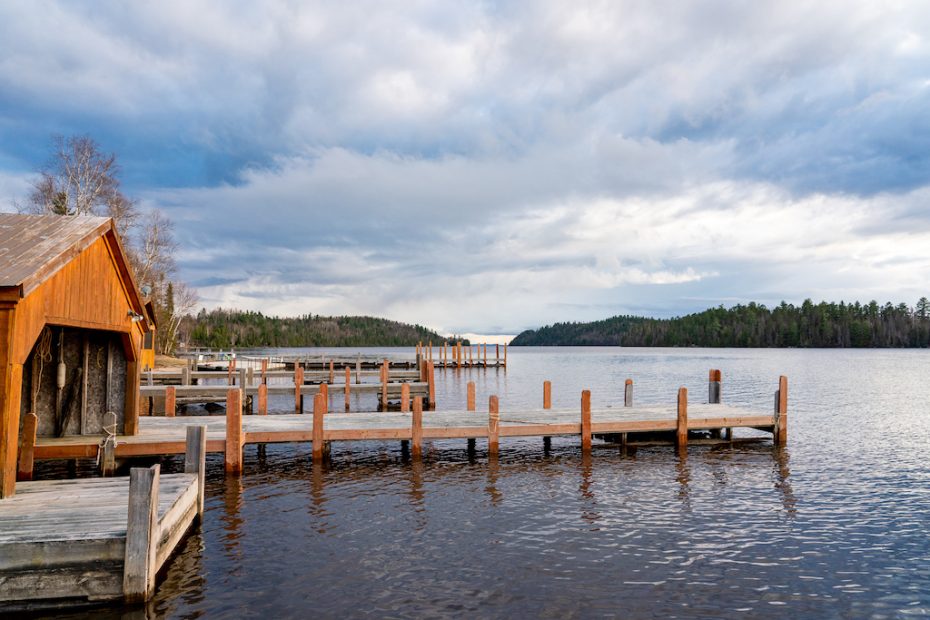
Restoration sites selected in Long Point First Nation
The Environmental Water team’s latest collaboration with Long Point First Nation, is continuing to evolve. In consultation with the community, two sites have been identified for a walleye habitat restoration project, and two youth have been hired to work alongside Water First staff. A local mentor position is still set to be hired soon.

Staff Profile
Director of Finance, Water First
Approvals have been enthusiastically received from both the community and the Ministère des Forêts, Faune et Parcs to begin the project which will weave many learning components into the process of the restoration.
Your Question:
"How do we ensure our training addresses community need?"
Watch John Millar, our Executive Director and Founder, explain how we ensure our training addresses the needs of each community.
How do we ensure our training addresses community need?
Your Questions Answered
We have been receiving very interesting questions from our support base. For each newsletter, we will be choosing one to feature and provide an avenue for a response.
Have you ever wondered how a spawning shoal is restored? Or maybe you want to know more about what interns learn about water treatment? What about what kinds of things the kids in our youth programs get most excited about?

